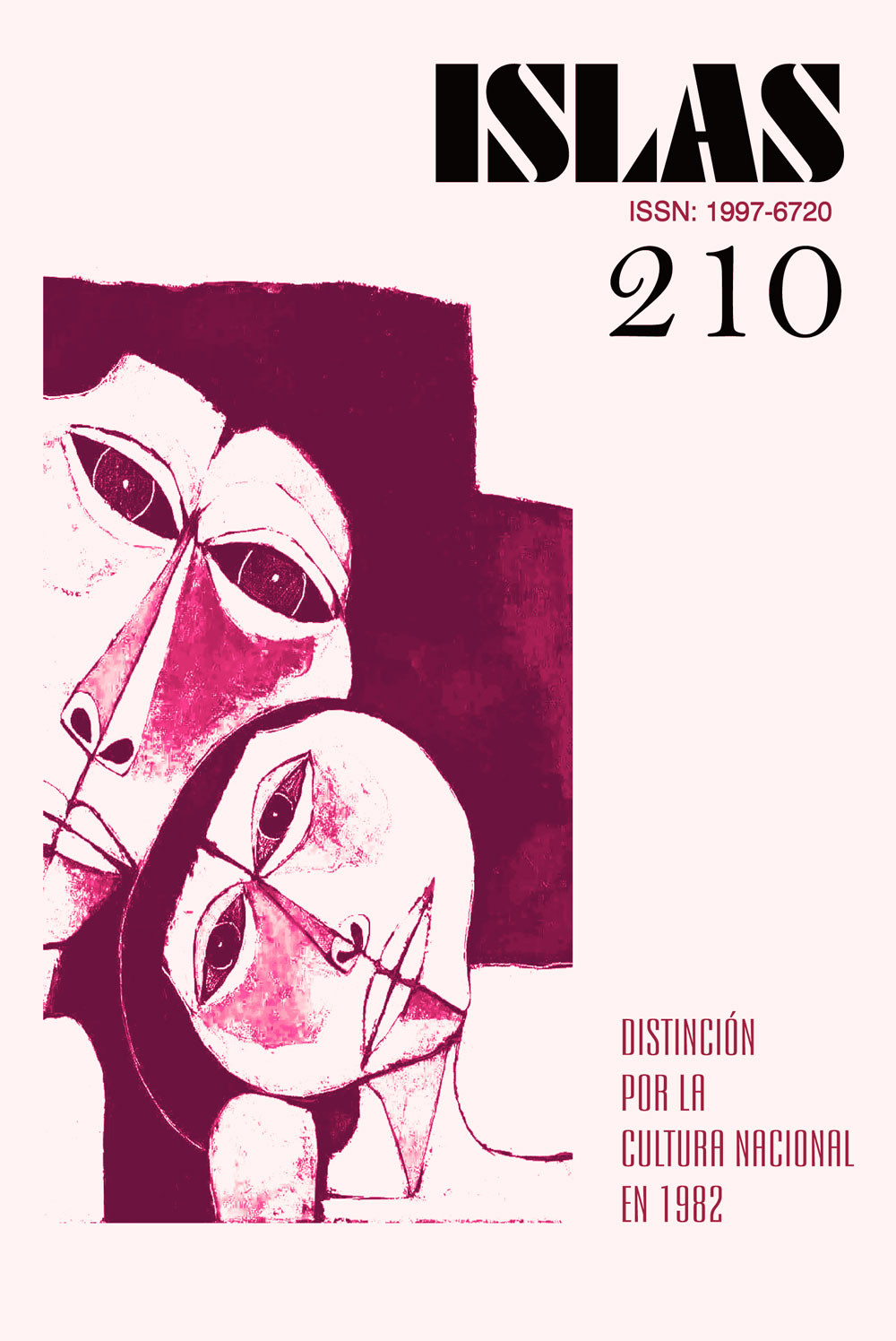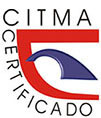La variación lingüística en la transmisión directa de textos modernos: de la estemática clásica a las Humanidades Digitales
Palabras clave:
transmisión textual directa de textos modernos , crítica textual , variación lingüística de textos modernos, tradición textual directa, Humanidades DigitalesResumen
Introducción: El presente artículo tiene como objetivo proporcionar una revisión teórica sobre el análisis de la variación lingüística en la transmisión directa de textos modernos, sobre la base de las principales principios y procedimientos de la crítica textual. Se asumen como punto de partida los postulados de la estemática clásica hasta las tendencias actuales de las Humanidades Digitales.
Métodos: El estudio es de tipo descriptivo, a partir de una revisión crítica documental de las principales fuentes disponibles, mediante el empleo de las técnicas de revisión bibliográfica y documental.
Resultados: Los resultados evidencian una falta de consenso entre las principales líneas teóricas que abordan la variación lingüística en la transmisión directa de textos modernos, así como una superposición de conceptos que se refieren de maneras disímiles al mismo fenómeno. Por otra parte, se constata la insuficiencia de labores asumidas fuera de los axiomas convencionales de la crítica textual clásica, más allá de sus disímiles postulados teóricos.
Conclusiones: Los principios de trabajo de la crítica textual necesitan, en primer lugar, un cambio de paradigma, que asuma procedimientos generales para el estudio de tradiciones textuales modernas. Para un desarrollo adecuado de esta disciplina en el contexto actual se precisa de una concepción interdisciplinar que facilite una intervención integral y más eficiente del fenómeno de la variación lingüística.
Descargas
Citas
ANTONELLI, R. (1985). Interpretazione e critica del testo. En Interpretazione e critica del testo. Giulio Einaudi Editore.
BARBI, M. (1938). La Nuova filologia e l’edizione dei nostri scrittori da Dante al Manzoni. G.C. Sansoni-Editore.
BIZZARRI, H. O. (2014). El hispanismo en la senda de la crítica textual. En S. de P. Universidade da Coruña (Ed.), Cincuentenario de la Asociación Internacional de Hispanistas.
BLECUA, A. (1983). Manual de crítica textual. Editorial Castalia.
BOWERS, F. (1964). Some Principles for Scholarly Editions of Nineteenth-century American Authors. University of Virginia.
BUZZONI, M., & BURGIO, E. (2014). The Italian ‘Third Way’ of Editing between Globalization and Localization.
CASTILLO LLUCH, M. (2006). La impostura lingüística: intervención de copistas, editores y gramáticos en los textos medievales. Cahiers d’études hispaniques médiévales, 29(1). https://doi.org/10.3406/cehm.2006.1981
CERQUIGLINI, B. (1989). Eloge de la variante: histoire critique de la philologie. Seuil.
CLARK, A. C. (1918). The Descent of Manuscripts. Clarendon Press.
CONTINI, G. (1986). Breviario di ecdotica. R. Ricciardi.
DALMARONI, MIGUEL (DIR.) Y RODRÍGUEZ, M. M. (2008). Literatura y crítica textual. En La investigación literaria. Problemas iniciales de una práctica. Ediciones UNL.
FRADEJAS RUEDA, J. M. (1991). Introducción a la edición de textos medievales castellanos (Simancas E). UNED.
GASKELL, P. (1972). A New Introduction to Bibliography. Oxford University Press.
GREG, W. W. (1950). The Rationale of Copy-text. Bibliographical Society of the University of Virginia.
ISELLA, D. (1987). Le carte mescolate: esperienze di filologia d’autore. Liviana.
LACHMANN, K. (1850). In T. Lucretii Cari De rerum natura libros commentarius. Reimerus.
LUCÍA MEGÍAS, J. M. (1998). Manuales de crítica textual: las líneas maestras de la ecdótica española. Revista de poética medieval.
MOROCHO GAYO, G. (1981). Panorámica de la crítica textual contemporánea. En Anales de la Universidad de Murcia. Letras. Universidad de Murcia.
MOROCHO GAYO, G. (1982). La crítica textual desde el renacimiento hasta Lachmann (III). En Anales de la Universidad de Murcia. Letras. Universidad de Murcia.
PASQUALI, G. (1934). Storia della tradizione e critica del teste. F. Le Monnier.
PÉREZ PRIEGO, M. Á. (1997). La edición de textos. Editorial Síntesis.
PÉREZ PRIEGO, M. Á. (2001). Introducción general a la edición del texto literario. UNED.
PÉREZ PRIEGO, M. Á. (2010). Ejercicios de Crítica Textual. UNED.
PÉREZ PRIEGO, M. Á. (2018). Historia del libro y edición de textos. UNED.
PHILLIPS-RODRÍGUEZ, W. (2010). Some considerations about reading stemmata. Ecdotica.
QUETGLAS, P. J. (1985). Elementos básicos de filología y linguística latinas. Tiede.
RAMÍREZ, I. (2009). Genética y Crítica Textuales en la edición de obras contemporáneas. En Crítica textual: un enfoque multidisciplinario para la edición de textos.
RENART, J., & BÉDIER, J. (1913). Le Lai de l’Ombre. Par Jean Renart. Publié par J. Bédier. Hachette Livre Bnf.
RONCAGLIA, A. (1975). Principi e applicazioni di critica testuale. Bulzoni.
ROUDIL, J. (1989). De la latence conceptuelle à l’expression discursive multiforme. Cahiers d’Études Hispaniques Médiévales, 14(1).
SÁNCHEZ-PRIETO BORJA, P. (2006). La lengua como problema en la edición de textos medievales. En Tradiciones discursivas: edición de textos orales y escritos (Número v. 1). Editorial Complutense.
SCOTTO, V. (2017). Archivos de la filología: apuntes sobre el arquetipo de Karl Lachmann. VIII Jornadas Internacionales de Filología y Lingüística y II de Crítica Genética.
SCOTTO, V. (2020). Apuntes sobre la lingüística y la filología: una lectura del siglo XIX alemán y su proyección en Lachmann y Schleicher. Traslaciones. Revista Latinoamericana de Lectura y Escritura, 7(13).
SEGRE, C. (1990). Semiótica filológica: texto y modelos culturales. Universidad de Murcia.
TAVANI, G. (1989). En busca de la autenticidad. El Correo de la UNESCO: una ventana abierta sobre el mundo.
TIMPANARO, S. (1981). La genesi del metodo del Lachmann. Liviana.
TROVATO, P. (2014). Everything You Always Wanted to Know about Lachmann’s Method. Libreriauniversitaria.it.
ZUMTHOR, P. (1972). Essai de poétique médiévale. Éditions du Seuil.
Publicado
Cómo citar
Número
Sección
Licencia
Derechos de autor 2025 Aliney Santos Gallardo, Miriel Martín Mesa

Esta obra está bajo una licencia internacional Creative Commons Atribución-NoComercial 4.0.
Usted es libre de:
Compartir — copiar y redistribuir el material en cualquier medio o formato
Adaptar — remezclar, transformar y construir a partir del material
La licenciante no puede revocar estas libertades en tanto usted siga los términos de la licencia
Bajo los siguientes términos:
Usted es libre de:
Atribución — Usted debe dar crédito de manera adecuada, brindar un enlace a la licencia, e indicar si se han realizado cambios. Puede hacerlo en cualquier forma razonable, pero no de forma tal que sugiera que usted o su uso tienen el apoyo de la licenciante.
NoComercial — Usted no puede hacer uso del material con propósitos comerciales.
No hay restricciones adicionales — No puede aplicar términos legales ni medidas tecnológicas que restrinjan legalmente a otras a hacer cualquier uso permitido por la licencia.









